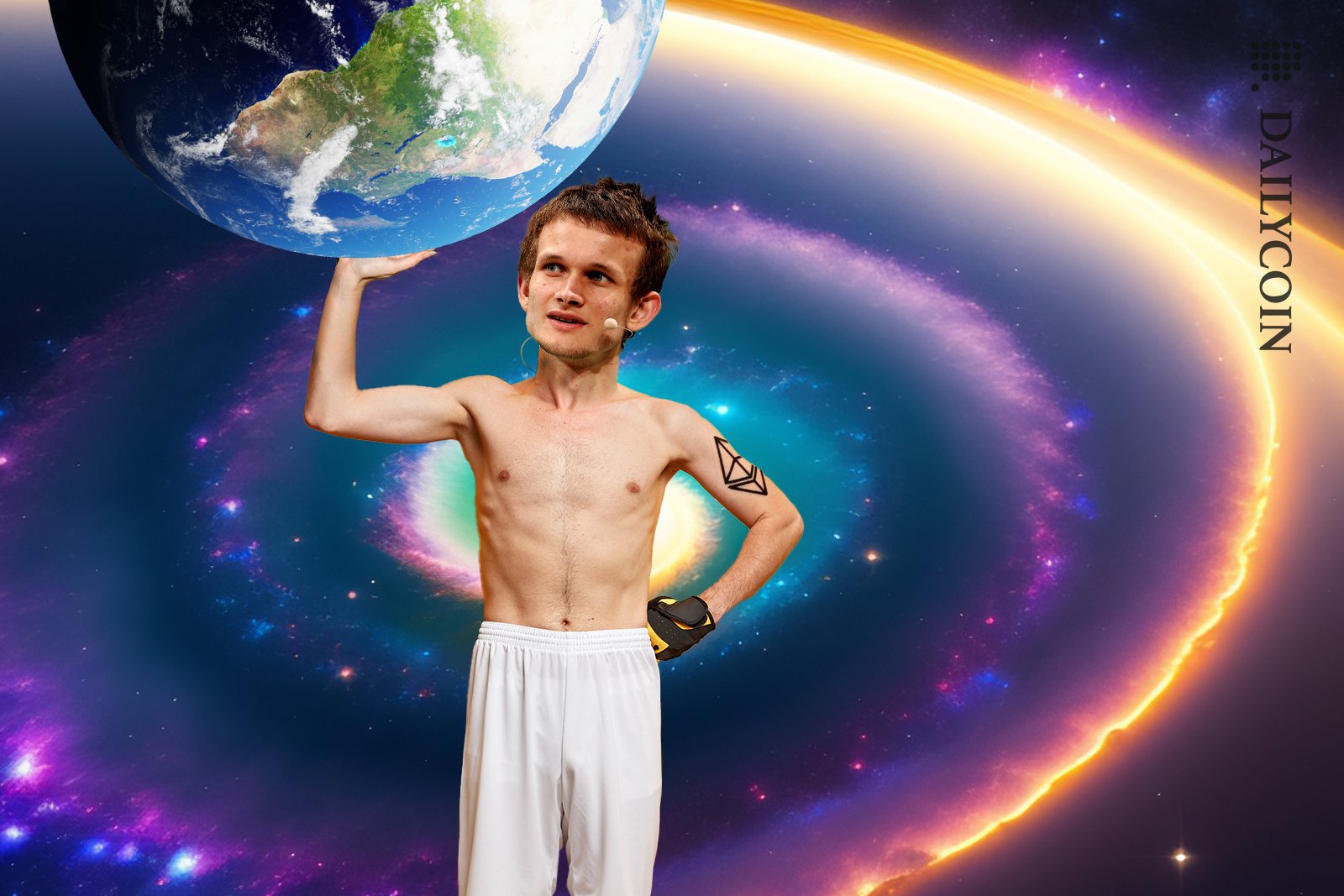
- Buterin explains why Proof of Personhood is needed to curb corporate influence.
- The Ethereum co-founder discusses potential risks with Worldcoin.
- He also suggests alternative ways to prove one’s identity.
Digital identity and AI are again at the forefront, this time thanks to the launch of Worldcoin, confounded by Sam Altman of OpenAI. The project aims to scan the irises of every person and generate unique proof of identity that serves as a “digital passport” of the future. Amid discussions about the implications of this system, Vitalik Buterin Ethereum’s co-founder, provides his insights about the project.
Buterin Explains Why We Need Proof of Personhood
On Monday, July 20, Vitalik Buterin weighed in on Wordcoin and the need for a Proof of Personhood (PoP) system. These systems, Buterin explains, enable decentralized systems like Ethereum to distinguish between real humans and bots.
This becomes increasingly important in a world where most interactions have moved online. This makes it easier for corporations, fraudsters, or malicious bots to manipulate digital systems.

Buterin underlined the significance of PoP as a method to counteract such manipulations by granting each individual a unique digital identity. By verifying that each account corresponds to a real person, PoP can be a powerful tool to ensure fair distribution of resources and control.
Sponsored
With PoP, users can set up systems that prevent corporations from asserting dominance in digital services. Moreover, PoP can prevent Sybil attacks, where a single entity creates multiple false identities.
Sponsored
That is precisely why OpenAI’s CEO Sam Altman co-founded Worldcoin, a startup that aims to scan the irises of every person on Earth. The Worldcoin system can distinguish between bots and humans thanks to unique biometric data. At the same time, it will reward users for scanning the irises with a technology they call the orb. However, the scheme is not without risks.
Worldcoin: What Are the Risks and Alternatives?
Buterin highlighted several risks with Worldcoin’s plan. One such risk lies in the orbs. If these devices were to be hacked under a decentralized manufacturing system, a single manufacturer could potentially create millions of fake iris scans, compromising the entire system’s integrity.
Another concern revolves around the misuse of verified identities. Buterin warned of scenarios where individuals could sell or rent their identities, leading to corrupt system use. The distribution of Worldcoin’s cryptocurrency hinges on the principle of one person, one share. The renting or selling of identities would undermine this principle and create a black market for identities.
Buterin elaborated on the need for a proper handling mechanism for lost identities. In case a person loses access to their Worldcoin identity, there needs to be a secure and reliable mechanism to recover it. Without a solid recovery plan, the loss of identity could result in financial loss and potential misuse of the person’s identity.
To tackle these issues, Buterin points to several alternatives. One of these is “personhood oracles,” communities that can verify the uniqueness of individuals and hardware-backed solutions as possible alternatives. He also notes that a system where multiple parties must agree on a person’s uniqueness could help reduce the risk of system abuse.
These alternatives have disadvantages but do not present the same privacy concerns as biometrics. This is why Buterin believes that they may eventually overtake the biometric approach.
On the Flipside
- Despite criticism, Worldcoin has achieved notable success since its launch. On Monday, July 24, the Worldcoin (WLD) token rose 54%.
- Worldcoin’s cofounder Sam Altman is also the CEO of OpenAI, responsible for the famous ChatGPT technology.
Why This Matters
Buterin’s article offers insights into potential risks and vulnerabilities that could impact Worldcoin’s success as a business.
Read more about Worldcoin’s launch and the discussion around it:
Worldcoin Launch Meets Enthusiastic Reception, but Privacy Concerns Persist: Here’s Why
Read more about Worldcoin’s background as a business:
How Worldcoin Wooed Investors to Inject $115M in an Ambitious Eye-Scanning Project
